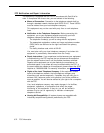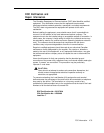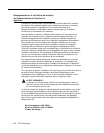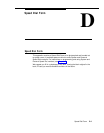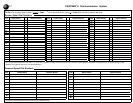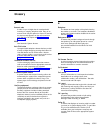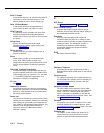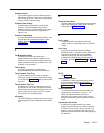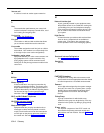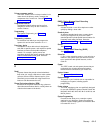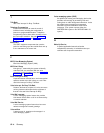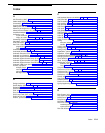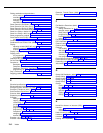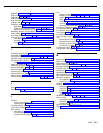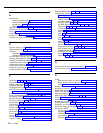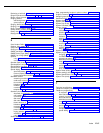
L
Line
The transmission path between your control unit
and the local phone company’s central office, used
for incoming and outgoing calls.
Line hunting
See Group Call Distribution.
Line jack
The location on 206 and 400 modules that allows
you to connect outside lines to the control unit.
Line number
The number assigned to each line jack on a 206 or
400 module. Line numbers run consecutively from
01 through 24 (for a two-carrier configuration).
Loudspeaker paging system
Equipment that lets you make announcements over
the loudspeaker from a system extension. Any
AT&T paging system can be connected to the
PAGE jack on the primary processor module in the
control unit.
M
Mailbox
See Voice mailbox.
Manual Signaling
A feature that lets a user signal an extension by
pressing a programmed button. The phone at the
target extension beeps for as long as the button is
pressed. Alternatively, the Manual Signaling button
can be used to ring or voice signal the target
extension. See also Intercom Auto Dial button.
MLS- and MLC-Model Telephones
See System phones.
MLS-CA24 Intercom Autodialer
See intercom Autodialer.
Music-on-hold system
Equipment that lets you play recorded music or
messages to callers who are placed on hold. A
music-on-hold audio source can be connected to
an RCA jack on the primary processor module in
the control unit. See also Background Music.
GL-4 Glossary
N
Intercom call
A call that is made to another system extension.
Network interface jack
A jack, generally located in your equipment room,
that provides access to an outside line coming into
your building from your local telephone company.
A line cord from the network interface jack to a line
jack on a 206 or 400 module connects the line to
your system.
Night Service
A feature that lets you redirect calls received after
hours or when a receptionist is not available to
answer calls. (This feature also activates night
service operation of the voice messaging system.)
O
One-touch Intercom Calling button
See Intercom Auto Dial button.
Outside line
See Line.
P
PARTNER Attendant
An optional call routing device that answers calls
and routes them to the appropriate extension based
on caller responses to a recorded announcement.
Password
A four-digit code assigned by the system manager
that users can enter from a system phone (except
the MLC-6) to override dialing restrictions and to
turn Night Service on and off. See also Night
Service.
Pickup Group
A group of extensions for which calls to any
extension in the group can be picked up, from any
extension in the system, by dialing a group pickup
code.
Primary carrier
The required component of the AT&T control unit
that contains the primary processor module and
206 modules and 400 modules. See also Expansion
carrier.



